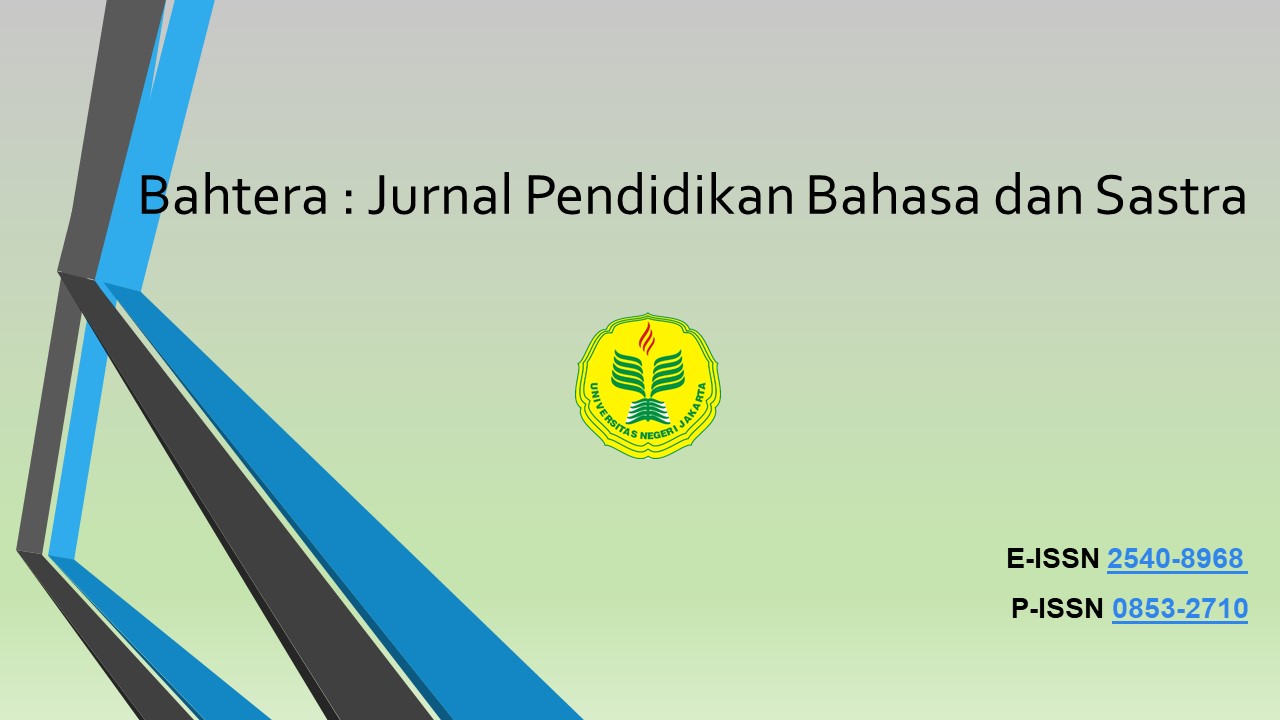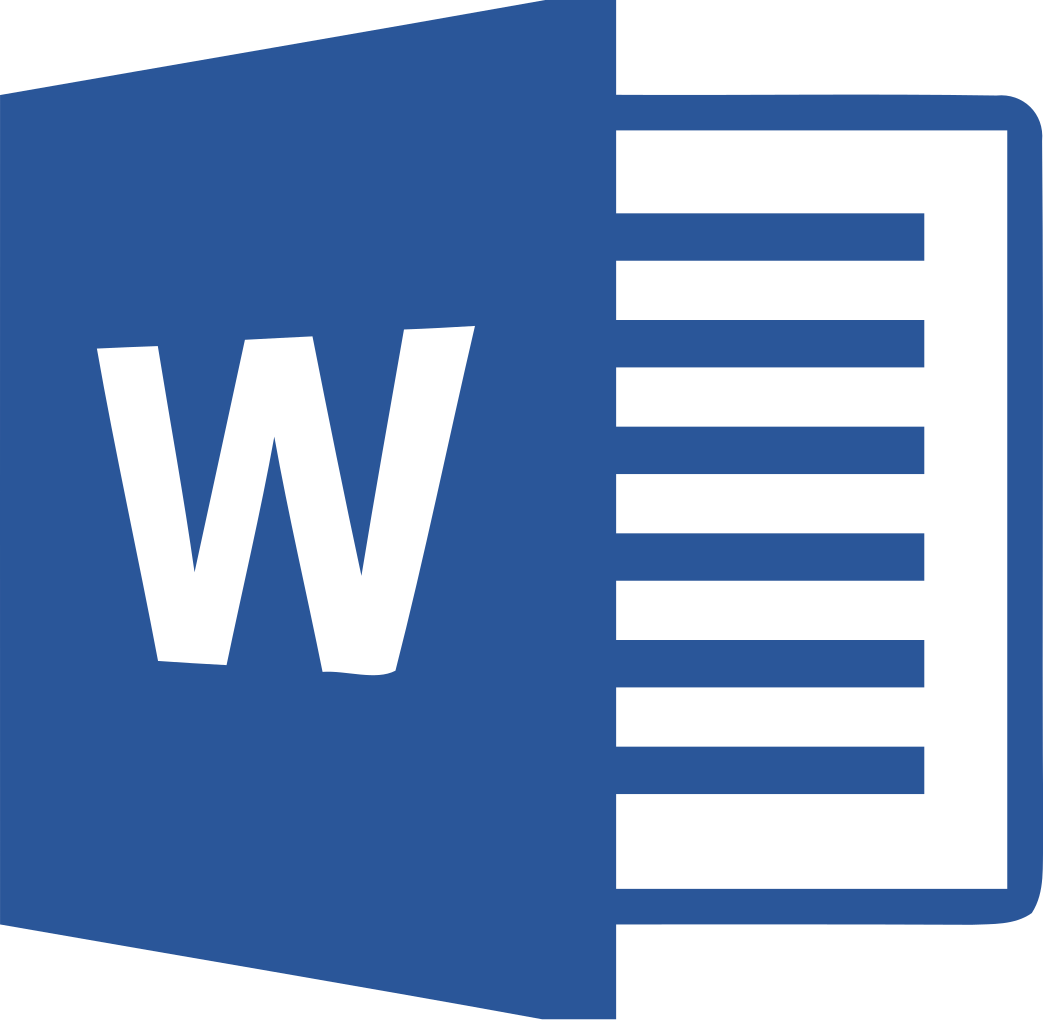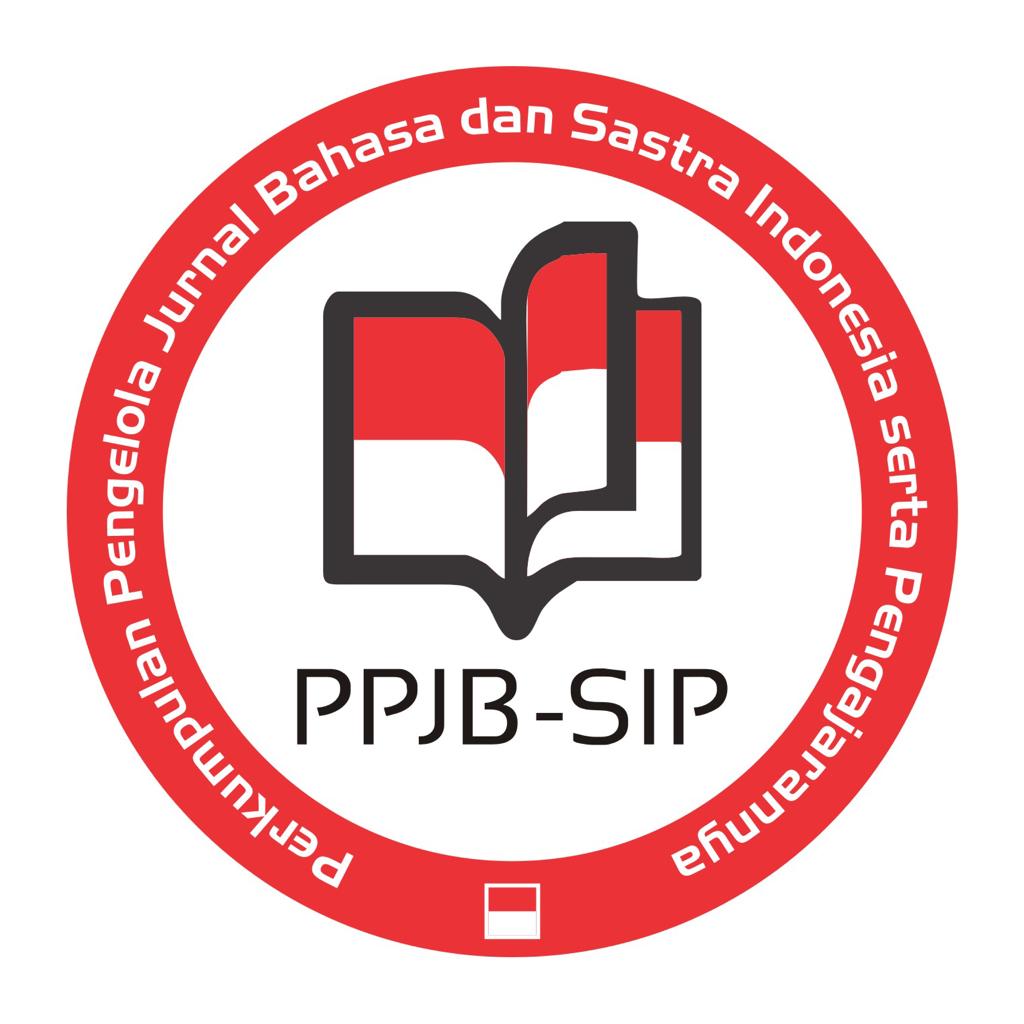PENGARUH TEKNIK PEMBELAJARAN DAN KEMAMPUAN BERPIKIR TERHADAP KETERAMPILAN MENULIS ARGUMENTATIF
DOI:
https://doi.org/10.21009/BAHTERA.151.02Keywords:
keterampilan menulis argumentatif, teknik mind mapping, teknik jurnal, kemampuan berpikir kritis, kemampuan berpikir kreatif, Argumentative writing skill, mind mapping technique, journal technique, critical thinking ability, creative thinking abilityAbstract
Penelitian ini bertujuan untuk menemukan pengaruh teknik pembelajaran (mind mapping, jumal) dan kemampuan berpikir (kritis, kreatif) terhadap keterampilan menulis argumentatif bahasa Inggris mahasiswa semester III Program Studi Pendidikan Bahasa Inggris FKIP Universitas Siliwangi. Penelitian menggunakan metode eksperimen dengan rancangan faktorial 2x2. Hasil tes keterampilan menulis argumentatif dan hasil tes kemampuan berpikir dianalisis menggunakan desain AN0 VA dua j alur pada taraf signifikansi 0,05. Dengan multistage random sampling dipilih sampel sebanyak 52 orang dari populasi sebanyak 188 orang. Temuan penelitian menunjukkan: (1) keterampilan menulis argumentatif dengan pembelajaran teknik mind mapping lebih baik daripada dengan teknik jumal; (2) keterampilan menulis argumentatif dengan kemampuan berpikir kritis lebih baik daripada kemampuan berpikir kreatif; (3) terdapat interaksi antara teknik pembelajaran, kemampuan berpikir dan keterampilan menulis argumentatif; (4) keterampilan menulis argumentatif dengan kemampuan berpikir kritis, belajar dengan teknik mind mapping lebih baik daripada dengan teknik jumal; (5) keterampilan menulis argumentatif dengan kemampuan berpikir kreatif, belajar dengan teknik mind mapping lebih rendah daripada dengan kemampuan berpikir kreatif dengan teknik jumal; (6) keterampilan menulis argumentatif dengan kemampuan berpikir kritis, belajar dengan teknik mind mapping lebih baik daripada dengan teknik jumal; (7) keterampilan menulis argumentatif dengan kemampuan berpikir kreatif, dengan pembelajaran teknik mind mapping lebih rendah daripada dengan teknik jumal.
The objective of this research is to find out the effect of instructional techniques (mind mapping, journal) and thinking ability (critical, creative) toward the students' argumentative writing skill of the third semester of English Department, FKIP Siliwangi University Tasikmalaya, academic year 2013/2014. This research was an experimental research with factorial design 2x2 using two-factor ANOVA at 0.05 significance level. The sample was 52 students selected by cluster random sampling technique. The data were collected using argumentative writing tests in English and thinking ability tests. The research finding showed: (1) the students' argumentative writing skill studying with mind mapping technique was better than by journal technique; (2) the students' argumentative writing skill for the students who have critical thinking ability was better than those who have creative thinking ability; (3) there was interaction between instructional techniques and thinking abilities toward argumentative writing skill; (4) the students' argumentative writing skill for the students who have critical thinking ability studying with mind mapping technique was better than those studying with journal technique; (5) the students' argumentative writing skill for the students who have creative thinking ability studying with journal technique was better than those studying with mind mapping technique; (6) the students' argumentative writing skill studying with mind mapping technique for the students who have critical thinking ability was better than those who have creative thinking ability; (7) the students' argumentative writing skill studying with journal technique for the students who have creative thinking ability was better than the students who have critical thinking ability. It can be inferred that instructional techniques and thinking abilities significantly affect the students' argumentative writing skill, and instructional techniques and thinking abilities affect each other.
Downloads
Published
How to Cite
Issue
Section
License
License & Copyright
This work is licensed under a Creative Commons Attribution 4.0 International License.










